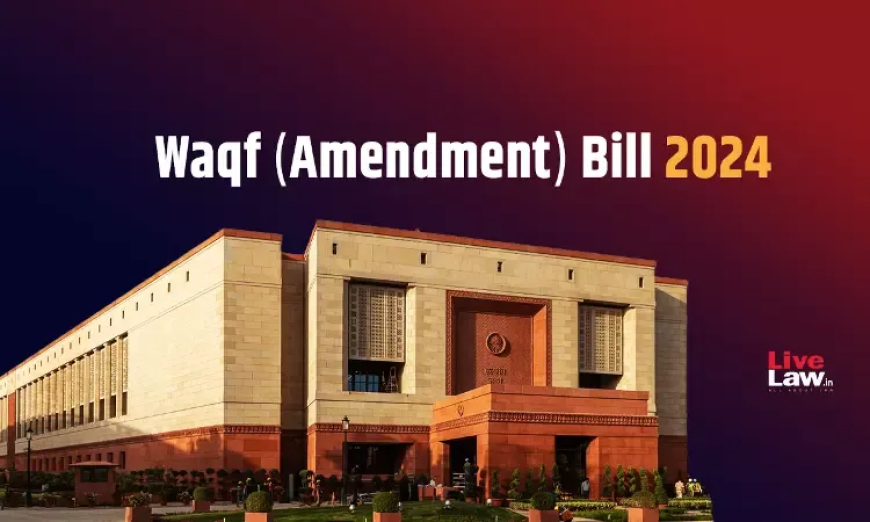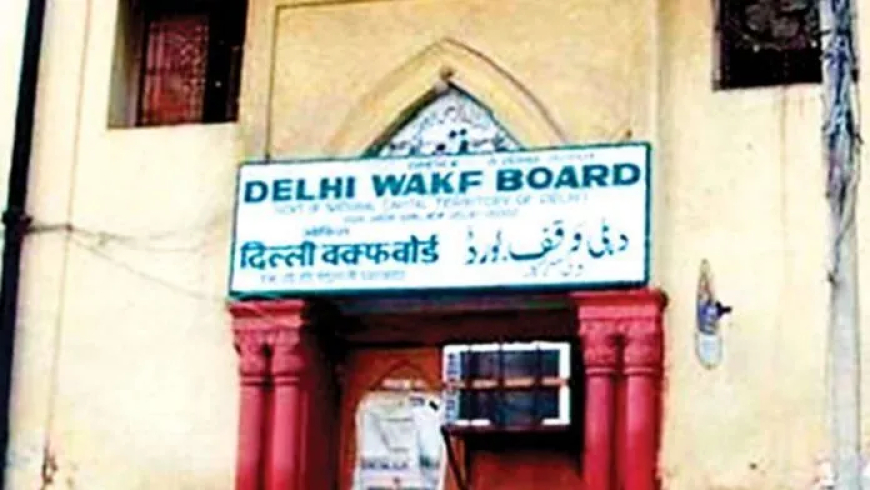The Future of WAQF and Libertarian Thought
Discover the challenges facing India's WAQF Boards and explore libertarian views on reform, promoting transparency, accountability, and effective management of waqf properties.

WAQF Boards in India face significant challenges such as political interference and mismanagement. This article delves into the issues plaguing WAQF management and explores how libertarian reforms could enhance transparency, accountability, and effective management of WAQF properties.
What is a WAQF?

A WAQF is an Islamic charitable endowment, traditionally used to fund religious and social services such as mosques, schools, and hospitals. While WAQFs have a long history in Islamic societies, their management has become increasingly complex in the modern era.
The WAQF Board: Structure and Functions
WAQF Boards are government-established bodies responsible for overseeing the management of WAQF properties. They ensure that these assets are used according to the donor’s intent, but their effectiveness varies based on legal frameworks and political influences.
Corruption of WAQF Boards
WAQF Boards today are plagued by issues such as corruption, legal disputes, and outdated governance structures. Mismanagement and political interference have led to concerns over the proper use of WAQF properties, with some cases involving the sale of valuable land at below-market rates.Corruption in WAQF management has been a significant issue, undermining the effectiveness and integrity of these Islamic charitable endowments. Instances of mismanagement, bribery, and political interference have led to the improper use of WAQF properties, often diverting funds meant for community welfare. This corruption not only erodes trust but also hampers the potential benefits that WAQF assets could provide to their intended beneficiaries. Addressing these issues is crucial for ensuring that WAQF properties serve their original charitable purposes and contribute positively to society.
Political Involvement in WAQF Administration
State oversight can help prevent misuse, but it also increases the risk of political interference. In some instances, WAQF Boards have been accused of serving political interests rather than the communities they are meant to benefit.
Libertarian Perspective on WAQF and State Control
Libertarians argue that government control over WAQF properties undermines community autonomy. They advocate for decentralization and privatization, believing that community-based management would be more efficient and reduce the risk of political exploitation.
Arguments for Privatization of WAQF Properties
Libertarians support privatizing WAQF properties to ensure more effective management. By transferring control to private entities or local communities, WAQF assets could be managed with a focus on the beneficiaries rather than political agendas.
Potential Risks and Counterarguments
Critics warn that privatization could lead to commercialization, where profits are prioritized over public welfare. Libertarians counter that safeguards can be implemented to ensure that WAQF properties continue to serve their original charitable purposes.
Global Comparisons and Case Studies
WAQF management varies globally. Countries like Turkey have centralized systems, while Malaysia uses a more decentralized approach. Successful reforms, such as those in Tunisia and Indonesia, have increased transparency and community involvement, though not all efforts have been equally successful.
The Future of WAQF and Libertarian Thought
Libertarian ideas will likely continue to shape future reforms of WAQF Boards, focusing on reducing government control and increasing community involvement. However, any reform must balance modern governance needs with the preservation of WAQF's charitable purposes.
Conclusion
WAQF Boards face significant challenges, and libertarian ideas offer potential solutions through decentralization and privatization. While these reforms present opportunities for more efficient management, they also pose risks that must be carefully managed to ensure that WAQF properties continue to serve their intended purposes.
FAQs
- What is a WAQF?
- A WAQF is an Islamic charitable endowment used to fund religious and social initiatives.
- What role does the WAQF Board play?
- The WAQF Board manages WAQF properties, ensuring they are used properly and transparently.
- What are the risks of privatizing WAQF properties?
- Privatization could lead to commercialization, where profit takes precedence over public welfare.
- How do libertarians view government involvement in WAQF?
- Libertarians oppose government control, advocating for community-based management to increase efficiency and reduce political interference.
- Are there successful examples of WAQF reforms?
- Yes, countries like Tunisia and Indonesia have seen success with reforms that improve transparency and community involvement.
What's Your Reaction?



















































